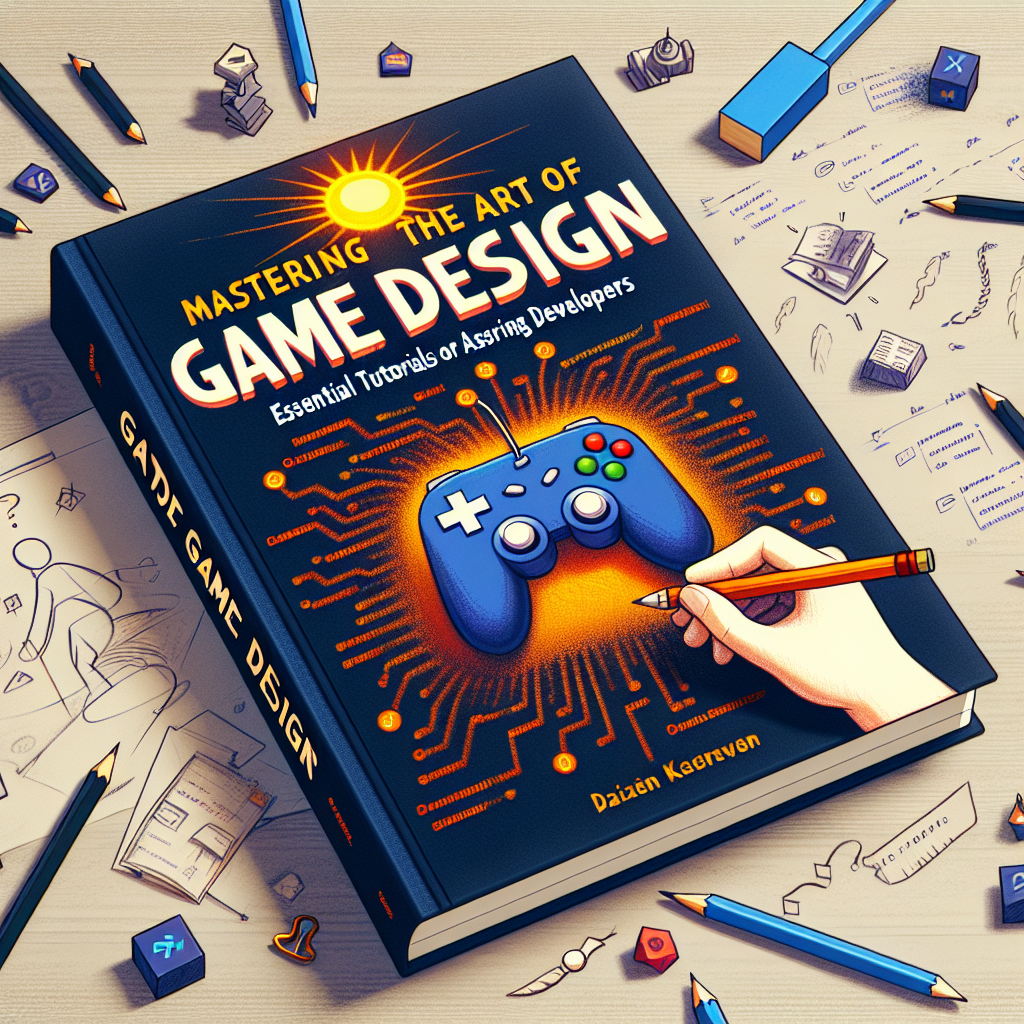Mastering the Art of Game Design: Essential Tutorials for Aspiring Developers
Game design is a multifaceted discipline that combines creativity, technical skills, and an understanding of player psychology. With the gaming industry booming and more aspiring developers than ever before, mastering the art of game design has become a desirable goal. Whether you dream of creating an indie masterpiece or working for a major studio, a strong foundation in game design is crucial. In this article, we’ll explore essential tutorials and resources that will help you on your journey to becoming a proficient game developer.
Understanding Game Design Basics
Before diving into complex tutorials, it’s vital to grasp the fundamental concepts of game design. Here are a few critical topics to explore:
-
Game Mechanics: Learn how different mechanics (rules, challenges, rewards) work together to create engaging gameplay. Tutorials focusing on basic game loops and core mechanics will provide a solid groundwork.
-
Storytelling and Narrative: Successful games often intertwine gameplay with compelling narratives. Tutorials that discuss character development, narrative structure, and world-building can help hone your storytelling skills.
- User Experience (UX) Design: Understanding how players interact with your game is crucial. Tutorials on UI/UX design, usability testing, and feedback loops will teach you how to create intuitive interfaces that enhance gameplay.
Recommended Tutorials
-
Introduction to Game Design Fundamentals (Coursera, edX, or Udemy): Many platforms offer courses that cover the basics of game design, including theory and practical exercises. These courses often feature insights from industry experts and can serve as a solid grounding.
-
Game Mechanic Tutorials (YouTube & GDC Vault): Search for channels that specialize in game design discussions. The Game Developers Conference (GDC) Vault offers videos where seasoned developers discuss various game mechanics, providing real-world context to theoretical concepts.
- Storytelling in Games (Game Maker’s Toolkit): Explore YouTube channels like Game Maker’s Toolkit, which delve deep into how stories enhance gameplay. Tutorials on narrative techniques will help you understand how to engage players emotionally.
Learning Game Development Tools
The next step is to familiarize yourself with popular game development tools and engines. Here are some notable ones to consider:
-
Unity: Known for its flexibility and wide array of resources, Unity is an excellent starting point for beginners. Numerous tutorials, from official documentation to extensive YouTube channels, provide insights on using Unity for 2D and 3D game development.
-
Unreal Engine: For developers focusing on high-end graphics and complex gameplay mechanics, Unreal Engine is a top choice. The official Unreal Engine Learning portal offers tutorials covering blueprints, C++, and project workflows.
- Godot: An open-source engine, Godot has gained popularity for its user-friendly interface and lightweight structure. Its comprehensive documentation and community tutorials can help new developers quickly get off the ground.
Essential Tutorials
-
Unity Beginner Series (Udemy): This detailed course guides you through the basics of Unity, from setting up your first project to more advanced concepts like shaders and physics.
-
Unreal Engine 5 For Beginners (YouTube): Many creators offer step-by-step guidance on utilizing Unreal Engine 5, with tutorials on blueprints, environment design, and character animation.
- Godot Game Development from Scratch (Coursera): This course provides a thorough understanding of Godot, teaching everything from basic scripting to full game creation.
Game Prototyping and Iteration
Prototyping is a crucial phase in game development, allowing designers to experiment and refine their ideas. Tutorials focusing on rapid prototyping techniques will help you learn how to iterate quickly and effectively.
Helpful Resources
-
Prototyping with Unity (Game Maker’s Toolkit): This tutorial provides insights on creating prototypes in Unity, highlighting how to quickly test game mechanics and player interactions.
-
Game Prototyping Techniques (Gamasutra): Articles on Gamasutra (now Game Developer) often discuss the importance of iteration and provide methods for testing your ideas.
- Ludum Dare Game Jam: Participating in game jams can supercharge your prototyping skills. Events like Ludum Dare challenge developers to create games under tight deadlines, fostering rapid development and iteration.
Joining the Game Development Community
Being part of a community can provide support, inspiration, and networking opportunities. Engage with others by joining forums, social media groups, and attending game development events.
Key Communities to Join
-
GameDev.net: An established community forum where developers can share knowledge, ask questions, and find resources.
-
Discord Servers: Many game development-focused Discord servers offer channels for feedback, collaboration, and learning.
- Local Meetups and Global Events: Attend local game development meetups or industry events such as PAX or GDC to connect with fellow developers and gain insights from industry leaders.
Conclusion
Mastering the art of game design is a rewarding yet challenging pursuit. By starting with the fundamentals, learning essential tools, refining your prototyping skills, and engaging with the community, you can set yourself on a path towards success. Remember, the key to becoming a great game developer lies in continuous learning and experimentation. Embrace the process, stay curious, and let your passion for gaming guide your journey.




